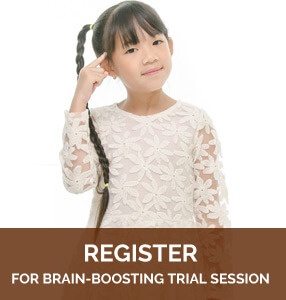Improve Concentration and Focus in Children
In today’s fast-paced and information-rich world, maintaining concentration and focus can be a challenge for both children and adults. With an abundance of distractions and stimuli vying for their attention, children often struggle to stay focused on the task at hand. Recognizing the significance of developing strong concentration skills in children, ThinkersBox provides the right solutions that yield long-lasting results.
Table Content
- Personal interests and motivation
- Skills and abilities
- Environment
- Commitment and consistency
- Physical and mental well-being
- Setting aside dedicated practice time
- Encouraging single tasking
- Creating a distraction-free environment
- Incorporating planned breaks
- Teaching deep breathing exercises
- Breaking down complex tasks
- Cultivating mindfulness
- Considering lifestyle factors
- Engaging Games and Activities

Concentration skills are a fundamental building block for children with regards to their cognitive and academic development. The ability to filter out distractions plays a crucial role in helping a child unlock their full potential and achieve optimal learning outcomes. Furthermore, improved concentration not only benefits their academic pursuits but also lays a solid foundation for success in various aspects of life.
The Importance of Concentration in Children
Concentration levels in children are influenced by a myriad of factors, ranging from their personal interests and motivation to their skills, abilities, environment, commitment, and overall physical and mental well-being. When embarking on the journey of improving a child’s concentration, it is crucial for parents to consider these aspects, as understanding the factors influencing concentration, can help parents tailor their approach to creating a more conducive learning environment for their child.
Factors Affecting Concentration
Personal Interests and Motivation: Children are more likely to concentrate on tasks that align with their interests and passions. Identifying and incorporating the subjects or activities that captivate their attention can help with their ability to focus.
Skills and Abilities: Every child has their own unique strengths and weaknesses. Recognizing their abilities and providing opportunities for growth in these areas can help their confidence and improve concentration.

Environment: Creating a calm and organized environment free from distractions can greatly contribute to a child’s ability to concentrate. Designating a specific study area, managing noise levels and screen time can help create an optimal setting for focused learning.
Commitment and Consistency: Consistency is key to developing concentration skills. A child who is not able to keep track of routine or stick to schedules can have concentration issues.
Physical and Mental Well-Being: Factors such as quality sleep, emotional well-being, balanced nutrition, hydration, regular physical exercise, and relaxation all play a significant role in supporting a child’s cognitive function and concentration abilities.

How to Enhance Concentration in Children
1. Setting Aside Dedicated Practice Time
One effective strategy is to set aside a reasonable amount of time for your child to practice focusing on a specific task. Start with shorter durations and gradually increase the time as they build their concentration stamina. This gradual approach will allow children to develop their ability to sustain attention over time.
2. Encouraging Singular Tasks
Another important practice is encouraging single tasking, where children learn to dedicate their undivided attention to one activity at a time. By emphasizing the importance of focusing on a single task, children can develop the skill of immersing themselves fully in the present moment.
3. Creating a Distraction-Free Environment
Creating a designated homework environment that is free from distractions is another valuable strategy. This provides a peaceful and organized space where children can engage in focused learning without interruptions. Reducing screen time, managing noise levels, and establishing a dedicated study area that is calm and organized can also help to greatly enhance a child’s ability to concentrate.
4. Incorporating Planned Breaks
Incorporating planned breaks at regular intervals during study or work sessions is essential for mental rejuvenation. These breaks help prevent mental fatigue, allowing children to recharge and maintain their concentration levels. Activities such as stretching, walking, or engaging in a brief mindfulness exercise can be effective ways to refresh the mind.
5. Teaching Deep Breathing Exercises
Teaching children deep breathing exercises, such as belly breathing, is another technique that promotes relaxation and enhances their ability to maintain concentration. Deep breathing exercises help children regulate their emotions and create a calm mental state, making it easier for them to stay focused on the task at hand.

6. Breaking Down Complex Tasks
Breaking down complex tasks into smaller, more manageable segments is an effective strategy to help children approach daunting tasks step by step. By dividing tasks into achievable parts, children experience a sense of accomplishment with each completed segment, which further motivates them to concentrate and persist.
7. Cultivating Mindfulness
Cultivating mindfulness is a powerful technique that enhances concentration and attention to detail. Encouraging children to observe and appreciate their surroundings fosters a heightened sense of presence, allowing them to stay focused on the present moment.
8. Considering Lifestyle Factors
Furthermore, it is important to recognize the impact of various lifestyle factors on concentration. Factors such as sleep quality, emotional well-being, balanced nutrition, hydration, regular physical exercise, and relaxation practices all play a significant role in supporting a child’s cognitive function. Ensuring a holistic approach to a child’s well-being contributes to their overall ability to concentrate and focus.
9. Engaging Games and Activities
Moreover, involving children in engaging games and activities specifically designed to enhance focus can be an enjoyable and effective way to strengthen their concentration skills. These activities can be tailored to the child’s age and interests, providing an interactive and stimulating environment for them to practice and develop their concentration abilities.
Tailoring Focus Strategies to Individual Needs:
It’s important to remember again that each child is unique, and what works for one may not necessarily work for another. As parents, it is essential to remain patient, flexible, and persistent in trying different strategies until you find the ones that resonate most with your child’s individual needs and learning style.
Conclusion
By implementing these practical strategies and creating an environment that fosters concentration, parents can empower their children to develop strong concentration skills that will benefit them throughout their lives. ThinkersBox is dedicated to supporting parents on this journey, providing comprehensive solutions that yield long-lasting results in improving concentration and focus in children.
ThinkersBox offers an Attention Booster Concentration Training Programme that uses the methods listed here along with our science-based curriculum to help your child achieve their maximum brain potential.
Or take a look at the other programmes we offer to find the right programme for your child!







